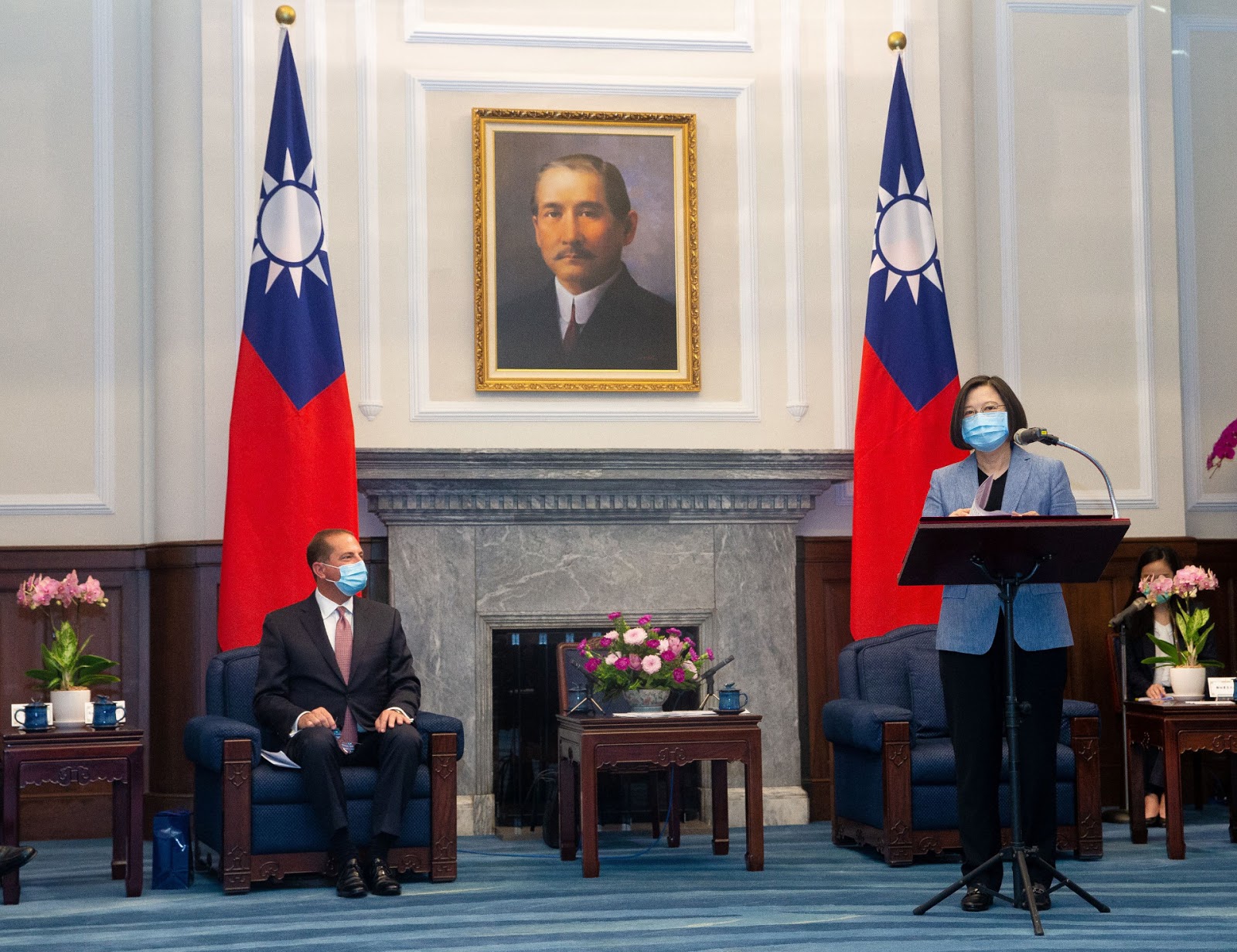U.S. health chief’s historic visit to Taiwan rattles Beijing
The highest-level U.S. official visit to Taiwan in four decades gave Taiwan a moment in the spotlight as U.S.-China relations worsen.

On Monday, U.S. Health and Human Services Secretary Alex Azar met with Taiwan’s President Tsai Ing-wen (蔡英文 Cài Yīngwén) in Taipei, becoming the highest-level U.S. official to visit Taiwan since 1979.
Learning about Taiwan’s effective handling of COVID-19 is the stated aim of Azar’s trip, but offering a show of support for Taiwan and a calculated slight to Beijing are on the agenda, too:
- “It is a true honor to be here to convey a message of strong support and friendship from President Trump to Taiwan,” Azar stated in the Presidential Office in Taipei in front of two extravagant red-and-blue Taiwanese flags.
- Azar did note that “Taiwan’s response to COVID-19 has been among the most successful in the world” (only 480 confirmed cases and seven deaths out of a population of 23 million), and called that “a tribute to the open, transparent democratic nature of Taiwan’s society and culture.”
- Azar and Tsai also presided over a signing ceremony of a Memorandum of Understanding about healthcare cooperation.
- Tsai said that she hoped U.S.-Taiwan collaboration will lead to “more breakthroughs” in preventing diseases and improve global cooperation so that “together, we can contribute to peace, stability, and development in the Indo-Pacific.”
In response, Beijing sent two fighter jets to buzz Taiwan on Monday.
- Chinese Foreign Ministry Spokesperson Zhào Lìjiān 赵立坚 urged “the U.S to…stop having official interactions of any kind with Taiwan and handle Taiwan-related issues prudently and properly to avoid severe damage to China-U.S. relations and peace across the Taiwan Strait.”
Today, the second day of his visit, Azar spoke at National Taiwan University, sharply criticizing China’s pandemic response while praising Taiwan’s democracy. He also said, “In these trying times, the United States knows that we will always have a friend in Taiwan.”
The big question
One wonders, though: Will Taiwan always have a friend in the United States?







